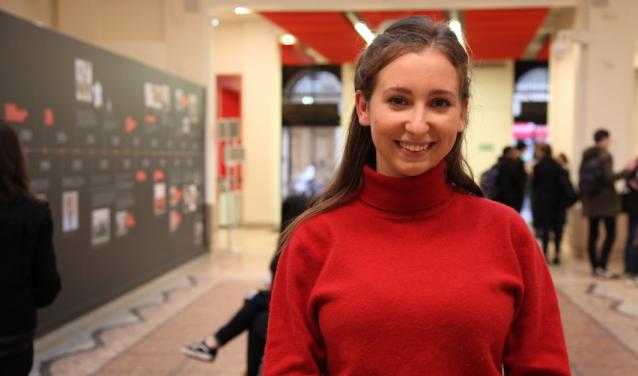Home>"The Environment Is at the Heart of Students’ Concerns"

23.01.2020
"The Environment Is at the Heart of Students’ Concerns"
Involved in the association Sciences Po Environnement (FR) since her first year at Sciences Po, Carole Meffre is the coordinator of the Paris campus chapter today, and a master’s student at the School of Public Affairs. She discusses the vision and the challenges of this flagship fixture of campus life which is celebrating its 12th year in 2020.
You joined Sciences Po Environnement during the first year of your bachelor’s degree. You are now a master’s student. What are the reasons behind this long-standing commitment? How has the association evolved over the years?
The environment was one of the main topics of my personal statement when I applied to Sciences Po: my concerns about the subject went back a few years. However, I was truly a novice back then, contrary to the students who join us today: they’re well informed, proactive, and are often deeply invested in multiple associations. They often contact us for information even before arriving at Sciences Po! In the past few years, Sciences Po Environnement has evolved greatly: it’s now a permanent and national structure which brings together more than 250 people across seven campuses. Above all, when the association was born 12 years ago, the subject was considered marginal… Today, the environment is at the heart of students’ concerns. Nonetheless, this doesn’t mean we don’t spend a lot of time trying to convince students to take action at all levels, both individually and collectively.
Today you’re the coordinator for the Paris campus, but you’ve previously occupied other positions within the association. What is Sciences Po Environnement’s role?
We have two missions: on the one side, raising awareness among the student community, and on the other, the transformation of Sciences Po into a sustainable establishment. We organise a large number of events, conferences, themed weeks - most recently, the European Week for Waste Reduction - and very diverse activities that range from thrift sales to cooking classes and DIY workshops. The sensitisation also works through student services, with very simple things like our ‘tassothèque’ (tasse = mug) which allows students to borrow mugs and avoid using disposable cups. But we’re not going to content ourselves with just this: individual actions are necessary, but are not at all sufficient in the face of climate change. We thus have another mission which focuses on eco-empowerment within Sciences Po.
What message and what actions do you undertake on this theme?
Sciences Po Environnement is one of five permanent associations: it is a particularity of Sciences Po. We rely on this strength to project a message of transformation at the level of our own university: this is the objective of our Sustainable Campus team. We have a place at the debate table, and we try to be constructive, professional and credible. We look at what is practiced elsewhere to show what works, not only in France but also in the international universities that students discover during their year abroad. It is a long-term job, not always easy to reconcile with turnover, which is the rule in a student association, but we obtain results, such as a compost, the vegetable garden or waste-sorting. However, from our point of view, these accomplishments are still too few, and we want the institution to be more ambitious, especially in terms of its carbon footprint. We now have a single contact with the new Chief Sustainability Officer at Sciences Po, which is a good sign. Overall, we are also campaigning for more environmental education in our courses - we are eagerly awaiting the report from the Latour committee which has been commissioned to present its findings on the subject. We hope that the initiatives will become a fundamental movement on practices and lessons.
Would you say that Sciences Po Environnement is a political association?
We are a political association, but not a partisan one! For us the environment is without question an issue that transcends all political parties. We try our best to unite all the different trends in political ecology, but this ecumenism is not without debate! But that's what I find fascinating. Some are also involved in other projects, in their own party, neighborhood or city. Others reconcile their commitment to the association with other modes of action, occasional mobilisations, and even civil disobedience. Sciences Po Environnement remains a gateway for students who want to get involved in ecology: it aims to remain wide open!
More information